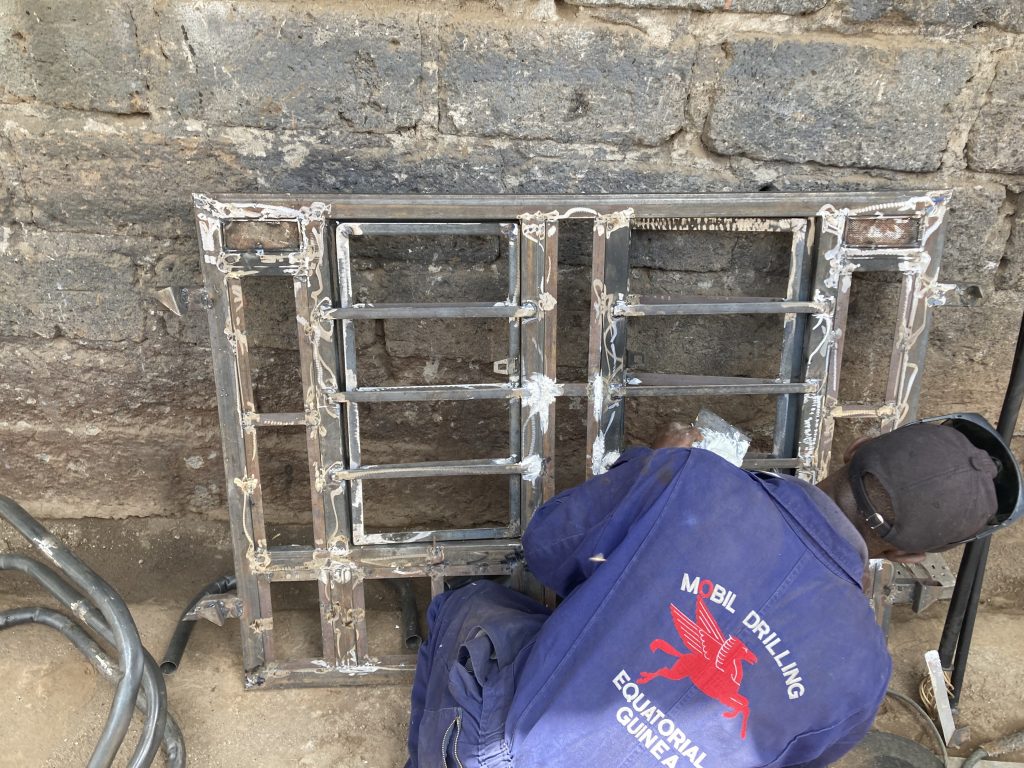PKG Fellowships: Ben Hoyle (G), Part IV
Read Part I, Part II and Part III of Ben’s Fellowship experience.
Ben Hoyle completed his Master of Architecture at MIT in June of 2021. During the summer, he laid the groundwork for Kivuli, a social enterprise he co-founded in Nairobi, which is focused on supporting workers in the informal “Jua Kali” manufacturing sector by connecting them to the local construction industry. In collaboration with his local partners, Ben started the process of developing a new window product that will help bridge the informal and formal sectors. He will continue this product development phase through the end of 2021.

In this post, I’ll go into some of the more technical aspects of window making that I’ve been learning about, combined with reflections on my fellowship experience this summer and where it leaves me for the coming months of work.
As I wrote about in my last post, we’ve been working with a local artisan, Joseph Githiga, to better understand the manufacturing process common for Jua Kali artisans. Here I’ll expand on some of the details of how he does his work.
First, I should slightly elaborate on Joseph’s workspace, which is similar to that of many Jua Kali artisans. He has a strip of dirt ground about five feet deep by 15 feet wide where he does all his work. It’s next to a narrow indoor storage space he keeps extra materials and has a power hookup. He does all his welding directly on the ground, and has a vice on a tripod welded together from scrap metal. As he goes about his work, he’s only a few feet from pedestrians and onlookers who pass by.
When we’ve asked Joseph what about this setup he would change to improve the quality of his work, he hasn’t named anything in particular. To our eyes, the space is lacking in many features, particularly a flat surface and some degree of enclosure from the street. But as he’s told us from the beginning, he feels perfectly capable of rising to any challenge, and his main obstacle is finding work. He can’t count on clients finding him accidentally as they walk by, and his network has been running dry, especially since the pandemic.
In terms of his production process, he works remarkably quickly and is somewhat loose about how he takes measurements and joins components. After welding everything together, he uses a kind of putty called body filler to cover any gaps, then smooths the ensemble with an angle grinder. Once painted, you can’t tell the putty from the metal and the window looks like it’s made of a single material. But even with the gaps covered, there are some notable misalignments and room for refinement.
On the one hand, Joseph is largely satisfied with his current production process. On the other, his goods will need more precise workmanship in order to be of interest to developer clients. While Joseph is receptive to suggestions for improvements, he would not be inclined to change anything himself. From my perspective this raises a delicate question of how to help him bring the production quality of his goods to a higher standard, without forcing him to change working conditions with which he’s largely satisfied, and which we as outsiders don’t fully understand.
In the coming months, our strategy to address this will be to focus directly on a window design that would reduce the room for error in his fabrication process. He’ll be joining us in the process, and down the line would still be able to fabricate it in his shop.
The tension of contributing to artisan processes without replacing them will continue to be something we grapple with. As noted in my previous post, the economic circumstances that Jua Kali artisans work in are fragile, and artisans depend on flexible prices to accommodate variability in their costs. We will need to work within the parameters of this economy in order to effectively support artisans, while also incorporating certain outside standards that will allow the artisans to connect to a new market of large-scale developers.
This summer has in large part a process of connecting with two worlds — that of artisans and that of developers. Though I had a general understanding of both from the outset, my PKG fellowship has given me the opportunity to delve into their intricacies and nuances. As we move forward with our particular interventions, I will need to keep up this learning process in order to effectively weave informal skills into the formal market. The associated constraints can feel prohibitively restrictive at times, but ultimately they are the foundation of our work and more often than not inspire a kind of reality-driven problem solving that I haven’t often experienced before. It’s been a summer spent building connections and knowledge, and I’m eager to put some of this into practice as we develop products and come up with new ideas alongside our partners.
Interested in PKG Fellowships? Learn more about how to apply to our IAP PKG Fellowships by clicking here!
Tags: Fellowships Summer 2021, IDEAS, IDEAS 2020, PKG Fellowships
